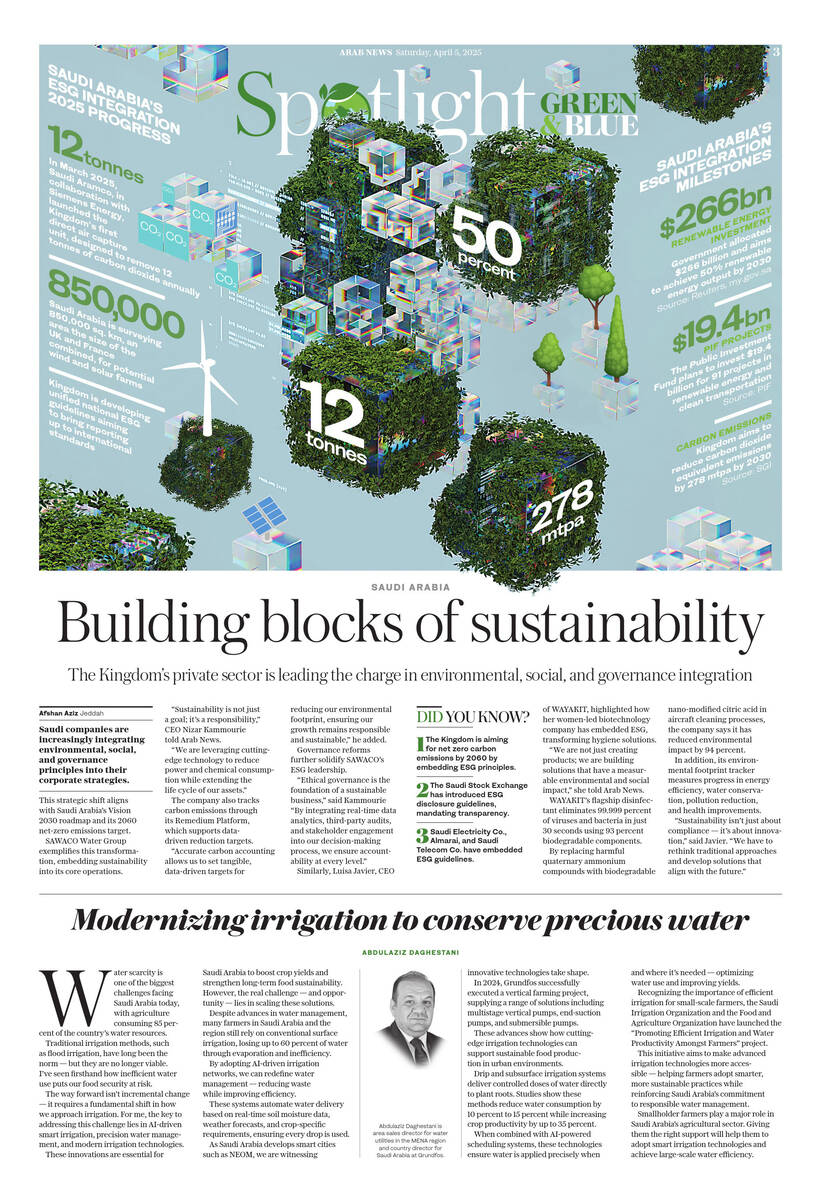JEDDAH: Saudi companies across multiple industries are increasingly integrating environmental, social, and governance principles into their corporate strategies, driving sustainable growth while balancing environmental stewardship, community impact, and corporate responsibility.
This strategic shift aligns with Saudi Arabia’s Vision 2030 roadmap — a transformative economic diversification plan — and its ambitious 2060 net zero emissions target, reinforcing the nation’s position as a sustainability leader.
SAWACO Water Group exemplifies this transformation, embedding sustainability into its core operations.
“Sustainability is not just a goal; it’s a responsibility,” CEO Nizar Kammourie told Arab News, emphasizing the company’s alignment with Vision 2030’s focus on environmental and social progress.
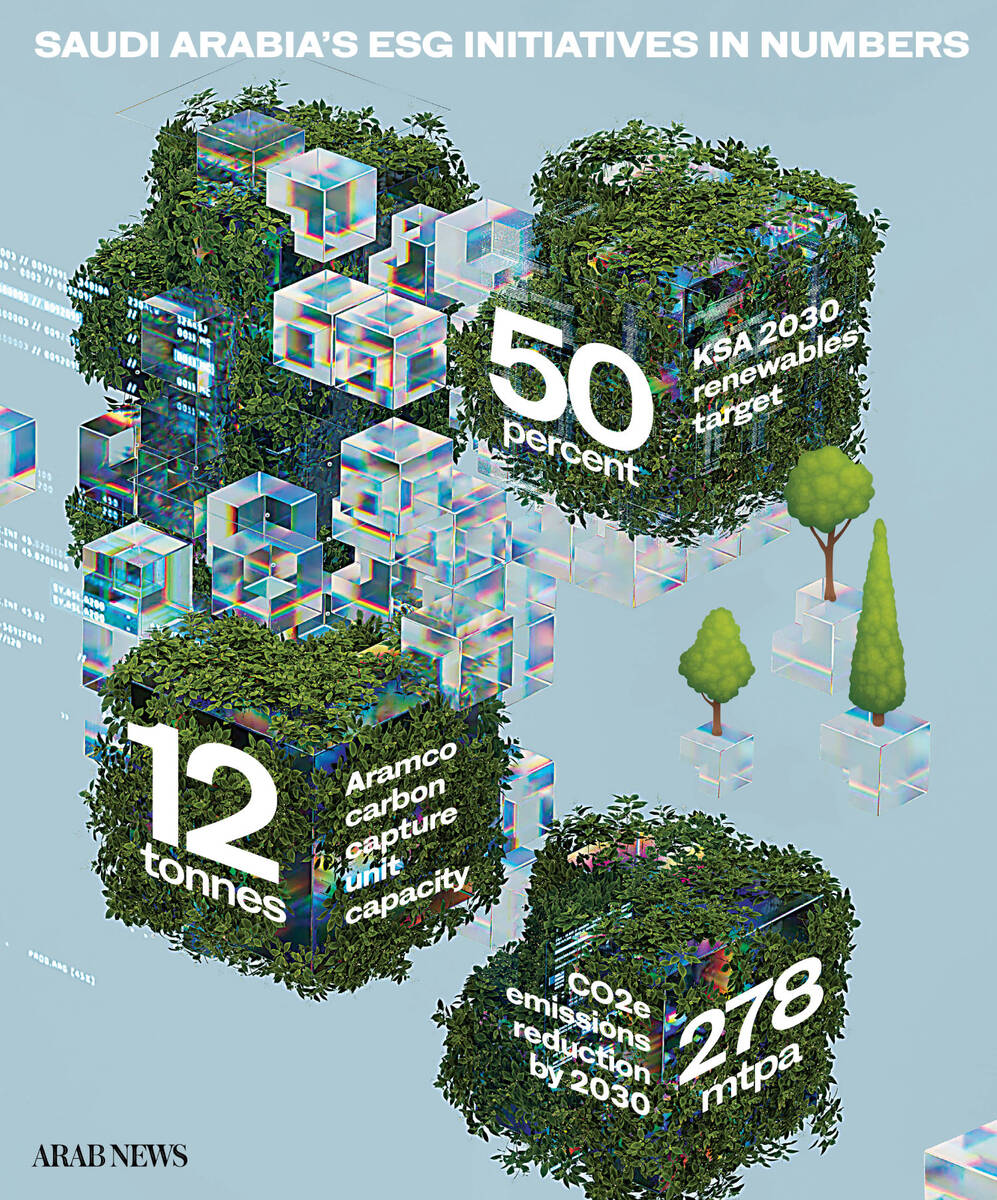
He added: “At SAWACO, we integrate ESG into every aspect of our operations, from optimizing resource efficiency to ensuring transparent governance and community engagement.”
Underpinning this commitment, SAWACO has implemented advanced operations intelligence software to enhance energy efficiency in desalination plants.
“We are leveraging cutting-edge technology to reduce power and chemical consumption while extending the life cycle of our assets,” said Kammourie.
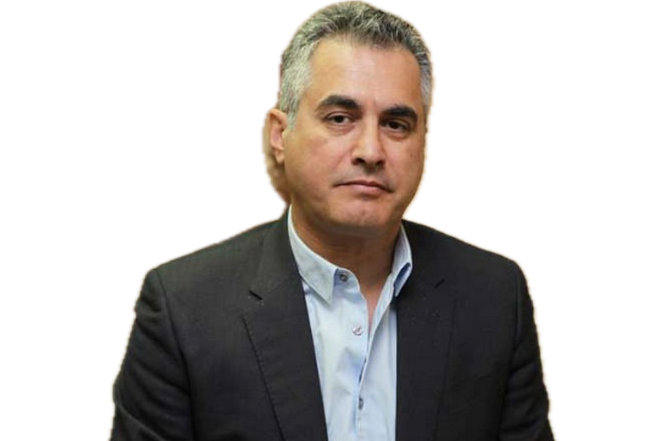
Nizar Kammourie, chief executive officer of SAWACO. (Supplied)
The company also tracks carbon emissions through its Remedium Platform, which supports data-driven reduction targets.
“Accurate carbon accounting allows us to set tangible, data-driven targets for reducing our environmental footprint, ensuring our growth remains responsible and sustainable,” he added.
To address resource optimization, SAWACO has partnered with a US-based firm to pioneer brine minimization technology.
“Water is one of our most precious resources, and we are committed to maximizing its use,” said Kammourie.
“Our innovative brine minimization system enhances freshwater recovery from seawater while significantly reducing brine discharge, preserving marine ecosystems and supporting coastal livelihoods.”
Governance reforms further solidify SAWACO’s ESG leadership. A dedicated committee oversees alignment with international sustainability standards such as the UN Sustainable Development Goals.

“Ethical governance is the foundation of a sustainable business,” said Kammourie “By integrating real-time data analytics, third-party audits, and stakeholder engagement into our decision-making process, we ensure accountability at every level.”
He added: “Sustainability must be measured, not just discussed. That’s why we also integrate ESG metrics into performance reviews, making it a part of our company culture rather than just a corporate initiative.
“We are not just providing water — we are safeguarding the future of water sustainability in Saudi Arabia. Our goal is to drive meaningful change that aligns economic success with long-term sustainability.”
These efforts reflect broader national momentum, as Saudi businesses bridge profitability and planetary stewardship to set new benchmarks for ESG leadership in emerging markets.
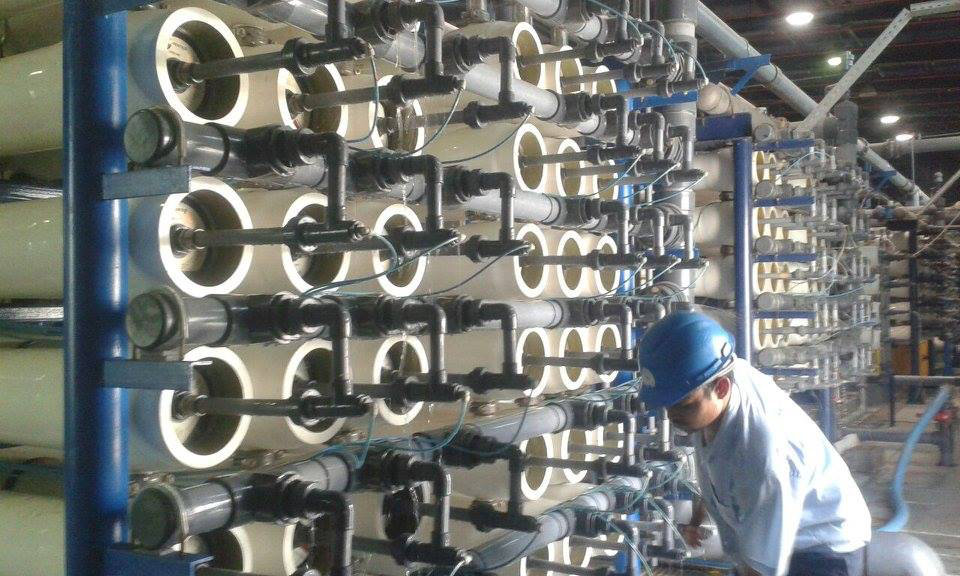
SAWACO is not just providing water, but also afeguarding the future of water sustainability in Saudi Arabia, according to its CEO. (Supplied)
Similarly, Luisa Javier, CEO of WAYAKIT, highlighted how her women-led biotechnology company has embedded ESG into its DNA, transforming hygiene solutions in aviation, transportation, and facilities management.
“We are not just creating products; we are building solutions that have a measurable environmental and social impact,” she told Arab News.
WAYAKIT’s flagship disinfectant eliminates 99.999 percent of viruses and bacteria in just 30 seconds using 93 percent biodegradable components.
By replacing harmful quaternary ammonium compounds with biodegradable nano-modified citric acid in aircraft cleaning processes, the company says it has reduced environmental impact by 94 percent.

Dr._Luisa_Javier (left), CEO of WAYAKIT, and cofounder Dr. Sandra Medina. (Supplied)
In addition, its environmental footprint tracker measures progress in energy efficiency, water conservation, pollution reduction, and health improvements.
“Sustainability isn’t just about compliance — it’s about innovation,” said Javier. “We have to rethink traditional approaches and develop solutions that align with the future.”
WAYAKIT also integrates ESG principles into its governance and transparency measures. Its women-led C-suite strengthens decision-making diversity, while blockchain technology safeguards sustainability metrics, preventing greenwashing and ensuring accurate reporting.
“Authenticity matters,” said Javier. “Every sustainability claim we make is backed by rigorous third-party laboratory testing. We are setting a new standard for how biotech companies can be both profitable and responsible.”
DID YOU KNOW?
• The Kingdom is aiming for net zero carbon emissions by 2060, embedding ESG principles in national initiatives like Green Riyadh.
• In 2021, the Saudi Stock Exchange introduced ESG disclosure guidelines, mandating listed companies prioritize transparency.
• Saudi Electricity Co., Almarai, and Saudi Telecom Co. have embedded ESG guidelines, issuing green bonds and improving governance.
Community engagement is another cornerstone of WAYAKIT’s ESG strategy. With 70 percent of its workforce consisting of women, the company provides technical training in biotechnology and leadership development to foster career advancement for Saudi women.
“Empowering women in STEM is not just a mission — it’s a responsibility,” said Javier. “Our workforce is a reflection of what Saudi Vision 2030 aims to achieve: a thriving, innovative economy where women play a central role.”
This momentum is part of a broader national trend. A 2023 report by Saudi Arabia’s sovereign wealth fund, PIF, highlighted how Saudi organizations, particularly those within its portfolio, are spearheading ESG awareness and implementation.
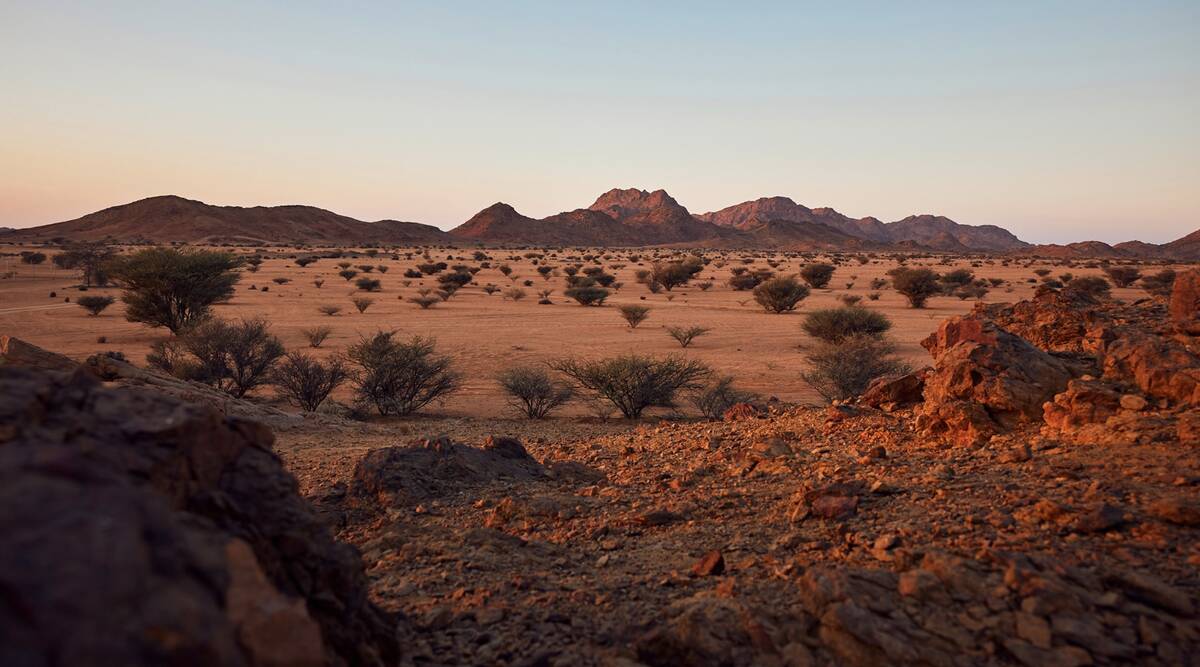
Under the Saudi Green Initiative, more than 600 million trees and shrubs are expected to be planted by 2030 across the Kingdom. (SGI photo)
The Saudi Green Initiative, launched by Crown Prince Mohammed bin Salman, supports this shift with $187 billion in investments across more than 60 programs to advance the green economy.
Through large-scale investments in green initiatives, innovative carbon reduction strategies, and community-focused programs like those led by SAWACO and WAYAKIT, Saudi businesses are proving that profitability and sustainability can coexist.
Collectively, these efforts set a new benchmark for ESG leadership in emerging markets while positioning Saudi Arabia as a global leader in sustainable development.
